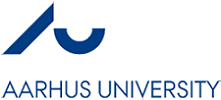Operations and Supply Chain Analytics

Introduktion
By joining the Operations and Supply Chain Analytics (OSCA) programme, you will learn how to address complex problems and make more effective decisions based on data, more completed consideration of available options, and careful predictions of outcomes and estimates of risk within the field of Operations and Supply Chain Management (OSCM).
OSCM is about planning and controlling the activities of a company as well as coordination between companies, in order to secure that the right product is delivered in the right quantities, to the right customer, at the right time, and at the right price. OSCM is one of most critical factors in the long-term success of a business. The OSCM decisions involve sourcing, materials management, and operations planning, distribution and logistics planning, sales and demand forecasting, and order fulfillment, etc. A business with an efficient and effective operations and supply chain may significantly reduce all of the operating expenses, which contributes to a greater profit. Analytics helps realise business objectives by analysing data to create predictive models for forecasting and optimising business processes for enhanced performance. The successful applications of OSCA drive business innovation and help companies to stay competitive in real businesses.
Acquired skills and competencies
The OSCA programme aims at providing you with theoretical foundation, quantitative and analytical skills, and hand-on experience to challenge and solve the sophisticated OSCM problems. As an Operations and Supply Chain Analyst, you need insight into digital tools for analytics to be able to handle and transform diverse pieces of information and data, and then model and solve problems.
The programme provides you with an in-depth knowledge about:
- Strategy design and performance improvement in OSCM.
- Methods for planning and controlling the flow of goods and information in a company or across supply chains.
- IT-based tools and how to work with data, matching the increased focus on digitalised and data-driven decision-making in OSCM.
The programme prepares you for managerial and consulting roles within the OSCM and provides you with analytical skills that enable you to appraise, systematically structure, and analyse the possible solutions to complex problems in operations and supply chains, so that right decisions can be made. The teaching format of the programme encourages student participation. An internship and Master’s thesis will provide you with self-management and communication skills.
Careers
Operations managers and supply chain managers with analytical skills remain the most in-demand jobs for both profitable and non-profitable organisations. As one of the most important business functions, OSCM also naturally creates rich opportunities for a student job, internship, Master’s thesis, and future career.
Na studia magisterskie mogą kandydować wszyscy, którzy ukończyli studia licencjackie lub inżynierskie (studia I stopnia), studia magisterskie lub studiują na ostatnim roku studiów I-stopnia. Studia, które planujesz powinny mieć zbliżony profil do tych obecnych lub ukończonych, ponieważ w procesie rekrutacji kluczowa jest ich zgodność programowa.
Wykaz punktów ECTS – osoby, które są jeszcze w trakcie studiów, muszą załączyć wypis punktów ECTS, w którym będzie wykazane, jakie przedmioty były realizowane na studiach oraz ile punktów za nie otrzymano.
Dyplom ukończenia studiów licencjackich lub inżynierskich – jeśli jesteś absolwentem wyższej uczelni, nie potrzebujesz wypisu, wystarczy załączyć dyplom ukończenia studiów wraz z suplementem (w języku angielskim lub oryginał z tłumaczeniem)
Course description - należy przygotować dokument, zbierający cały sylabus ze studiów licencjackich. Takie sylabusy najczęściej są do pobrania na stronie uniwersytetu. Należy je przetłumaczyć na język angielski (można samodzielnie) i złączyć w jeden dokument. Warto też zapytać w dziekanacie uczelni, czy nie dysponują wersją angielską.
Oficjalna skala oceniania Twojej uczelni - możesz dostać taki dokument w dziekanacie Twojej uczelni lub skonstruować samodzielnie. W obu przypadkach dokument powinien zawierać pieczątkę dziekanatu.
Spełnienie wymagań w zakresie języka angielskiego można udokumentować w jeden z następujących sposobów:
IELTS – 6.5
TOEFL – 83 (Aarhus University TOEFL kod - 8935)
Uwaga: wymagania językowe mogą ulec zmianie. Przed wysłaniem aplikacji upewnij się jakie są wymagania językowe na konkretny kierunek bezpośrednio na stronie uczelni.
W przypadku zdawania certyfikatu IELTs upewnij się, czy uczelnia oprócz wymagań oceny końcowej nie ma również wymagań odnośnie ocen cząstkowych.
You can be admitted to the master's programme if the university assesses that your education has a level, scope, and content that corresponds to the academic requirements specified below.
| Subject area | Number of ECTS |
Methods The following subject areas must be covered:
| 15 |
| Marketing | 7,5 |
Finance | 7,5 |
| Accounting | 7,5 |
| Organisation and leadership theory | 7,5 |
| Microeconomics | 5 |
| Operations management | 5 |
| Additional ECTS points within the abovementioned areas | 25 |
| Bachelor’s project | 10 |
| Total | 90 |
